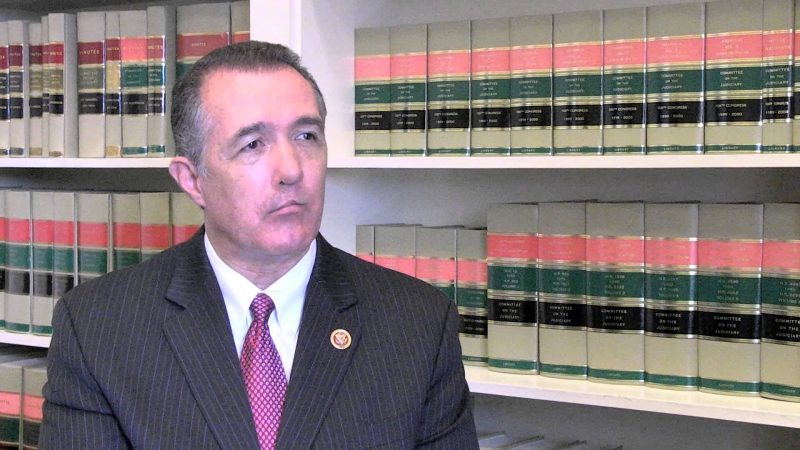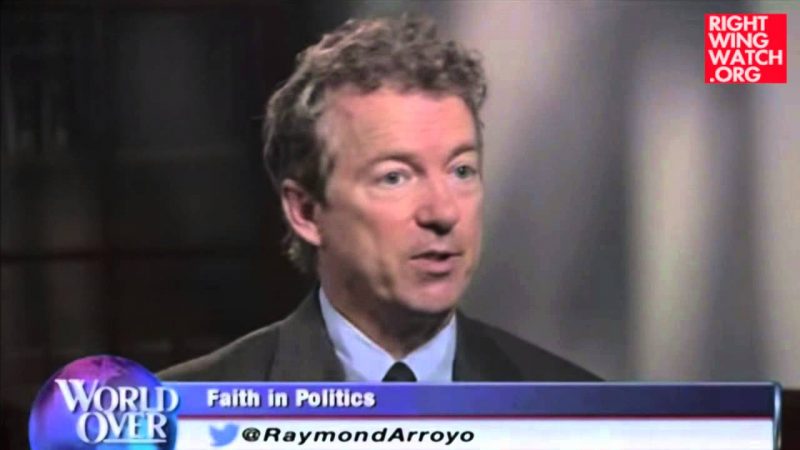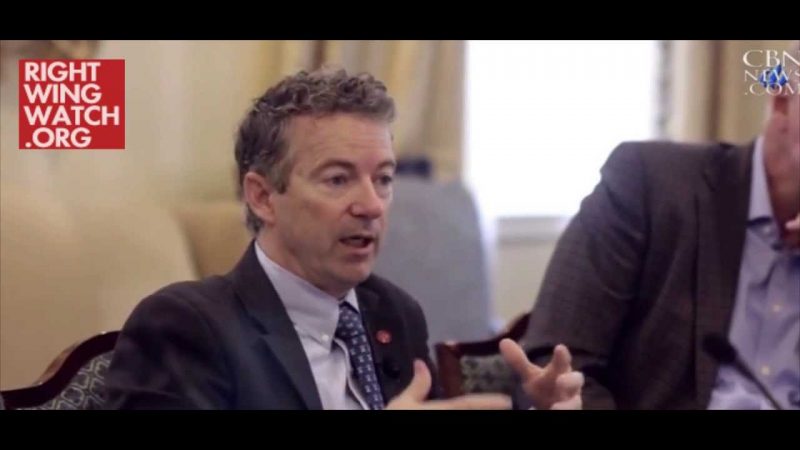Appearing on Bryan Fischer’s radio show today, Sen. Rand Paul (R-KY) dodged questions about his stance on the Defense of Marriage Act (DOMA). The likely presidential candidate tried to balance his professed libertarianism with his anti-gay views, telling Fischer that he’s “not sure” how he “come[s] down on the federalization part” because he fears that marriage equality advocates may try “to dictate for the rest of the country what our definition on marriage is.”
“You know I believe in traditional marriage, I really don’t understand any other kind of marriage,” Paul told Fischer, adding that he supports “keeping it state by state.”
When Fischer pressed him on where he stood on federal recognition of legally-married same-sex couples, Paul responded, “My fear is that in federalizing it we are going to lose the battle for the whole country and keeping it state by state, which is the way marriage has always been adjudicated, that we’ll still have areas that will continue to have traditional marriage.”
Fischer: Give us your understanding of the definition of marriage and do you support DOMA?
Paul: You know I believe in traditional marriage, I really don’t understand any other kind of marriage, between a man and a woman is what I believe in. I just don’t think it’s good for us to change the definition of that.
Fischer: So what about DOMA, the Defense of Marriage Act, that’s a federal law that defines marriage for federal purpose as the union of one man and one woman and then protects the right of states to deal with the marriage issue as they choose.
Paul: In Kentucky you know we passed a constitutional amendment to say that marriage is between a man and a woman so I think that is the right of the states and that’s where it originates and really I think the federal government shouldn’t get involved with telling the states that they can’t pass these laws.
Fischer: Now what DOMA does though senator at the federal level is it does define marriage for federal purposes as the union of one man and one woman, do you support that?
Paul: You know it’s kind of tricky and I’m not sure exactly how I come down on the federalization part. I have said before in the past and I continue to maintain that we should try to keep it as a state issue. My fear is that in federalizing it we are going to lose the battle for the whole country and keeping it state by state, which is the way marriage has always been adjudicated, that we’ll still have areas that will continue to have traditional marriage. I think we are losing in large areas of the country now. But you know if the urban centers are able to dictate for the rest of the country what our definition on marriage is I’m a little concerned about that so I’ve really thought that we ought to keep it as a state issue.








